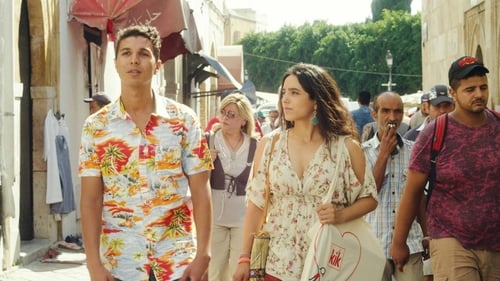
Mustapha
Amel is a young photographer. When she loses her husband, her life changes. Encouraged by her father-in-law, she takes a taste of life by photographing street boys. Without fear of being scandalous, she makes the choice to look at men as men look at women.

Férid Boughedir, the Tunisian film-maker and the journalist, historian and defender of the African and Arabic cinema, is filmed, through various situations and places between Tunisia and France, and more particularly around the preparation and during the realization of his movie Spring flavor, a comedy on the Tunisian revolution.
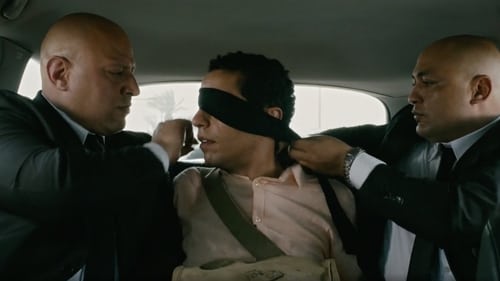
Writer
In 2011 Tunisia, as the Arab Spring awakens, unemployed graduate Aziz, nicknamed Zizou (Zied Ayadi), travels from his Saharan village to the big city of Tunis in search of a job. From television aerial installation to political intrigue, this fresh-faced young Candide will learn the ways of the world, fall in love with the ravishing Aicha (Sara Hanachi), and become famous.--Eddie Cockrell, FilmFest DC

Producer
In 2011 Tunisia, as the Arab Spring awakens, unemployed graduate Aziz, nicknamed Zizou (Zied Ayadi), travels from his Saharan village to the big city of Tunis in search of a job. From television aerial installation to political intrigue, this fresh-faced young Candide will learn the ways of the world, fall in love with the ravishing Aicha (Sara Hanachi), and become famous.--Eddie Cockrell, FilmFest DC

Director
In 2011 Tunisia, as the Arab Spring awakens, unemployed graduate Aziz, nicknamed Zizou (Zied Ayadi), travels from his Saharan village to the big city of Tunis in search of a job. From television aerial installation to political intrigue, this fresh-faced young Candide will learn the ways of the world, fall in love with the ravishing Aicha (Sara Hanachi), and become famous.--Eddie Cockrell, FilmFest DC

Self
Portrait of Tahar Chériaa. Founder of the first african cinefestival and father of panafricanism.

Director
A compelling double love story about a French-Tunisian Jewish family. Henry returns to La Goulette, port of Tunisia, with his wife, in search of his family roots. The film explores his parent's history from the 1920s, and the impact of the Vichy Government under German Occupation in the 1940s.
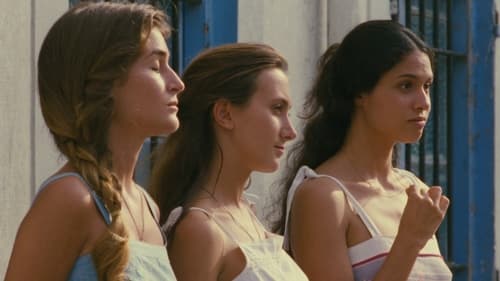
Writer
Summer, 1967. La Goulette, the touristic beach of Tunisi, is the site where three nice seventeen-year-old girls live: Gigi, sicilian and catholic; Meriem, Tunisian and Arab; Tina, French and Jewish. They would like to have their first sexual experience during that summer, challenging their families. Their fathers, Youssef, Jojo and Giuseppe, are old friends and their friendship will be in crisis because of the girls, while Hadj, an old rich Arab, would like to marry Meriem.

Director
Summer, 1967. La Goulette, the touristic beach of Tunisi, is the site where three nice seventeen-year-old girls live: Gigi, sicilian and catholic; Meriem, Tunisian and Arab; Tina, French and Jewish. They would like to have their first sexual experience during that summer, challenging their families. Their fathers, Youssef, Jojo and Giuseppe, are old friends and their friendship will be in crisis because of the girls, while Hadj, an old rich Arab, would like to marry Meriem.
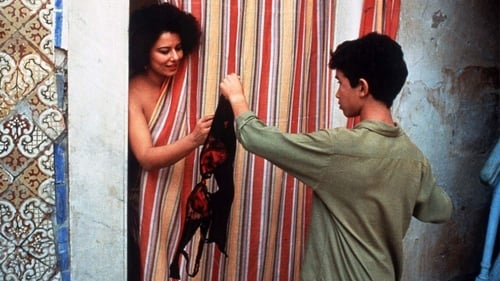
Writer
Twelve-year-old Noura dangles uncertainly in that difficult netherworld between childhood and adulthood. His growing libido has gotten him banned from the women's baths, where his mother took him when he was younger, but he's not yet old enough to participate in grown-up discussions with the men of his Tunisian village. Noura's only real friend is a troublemaker named Salih -- the village political outcast.

Director
Twelve-year-old Noura dangles uncertainly in that difficult netherworld between childhood and adulthood. His growing libido has gotten him banned from the women's baths, where his mother took him when he was younger, but he's not yet old enough to participate in grown-up discussions with the men of his Tunisian village. Noura's only real friend is a troublemaker named Salih -- the village political outcast.

Narrator
Focusing on key Arab films produced in the last 20 years. Férid Boughedir traces the development of the film-makers' concern to produce more socially aware cinema. Themes include the issue of Palestinian homeland rights and the nature of Arab identity. The film-makers also share a desire to develop a strong poetic tradition.

Director
Focusing on key Arab films produced in the last 20 years. Férid Boughedir traces the development of the film-makers' concern to produce more socially aware cinema. Themes include the issue of Palestinian homeland rights and the nature of Arab identity. The film-makers also share a desire to develop a strong poetic tradition.

Writer
Camera de Afrique Is a 1983 documentary. Acclaimed Tunisian filmmaker Férid Boughedir wrote, produced and directed this documentary that recounts 20 years in the history of African cinema through interviews and excerpts from 18 films.

Director
Camera de Afrique Is a 1983 documentary. Acclaimed Tunisian filmmaker Férid Boughedir wrote, produced and directed this documentary that recounts 20 years in the history of African cinema through interviews and excerpts from 18 films.

Director
Anthology film portraying the stories from the collection Sleepless Nights by Ali Douagi.
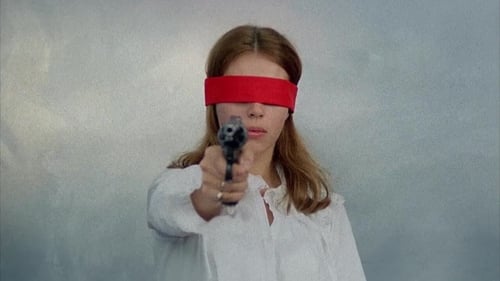
First Assistant Director
A group of French students are drawn into the psychological and sexual games of a mysterious Dutchman. Once they sample his "fear powder" the students experience a series of hallucinations.

Writer
Three sisters visiting their uncle in his island home, find themselves alone with the late uncle's manservant. Their relations reveal a dark side in all of them, and gender, racial, and class tensions that lead to situations of humiliation, domination and sex, and death.

Director
Three sisters visiting their uncle in his island home, find themselves alone with the late uncle's manservant. Their relations reveal a dark side in all of them, and gender, racial, and class tensions that lead to situations of humiliation, domination and sex, and death.
















